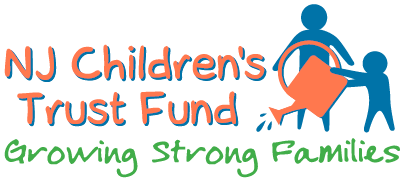| For Immediate Release | Contact: |
| November 4, 2016 | Ernest Landante, JR. (DCF) |
| 609-888-7915 | |
| Aimee LaBrie (RUSSW) | |
| 848-932-5340 |
TRENTON -- The Christie Administration and the Institute for Families at the Rutgers University School of Social Work (RUSSW) launched the second phase of an innovative data portal that shows the public how well New Jersey’s child welfare system is serving the state’s most vulnerable children, youth, and families.
The New Jersey Child Welfare Data Hub (njchilddata.rutgers.edu) enables users to produce customized charts, graphs, and other visuals related to key child welfare data from 2008-2015.
Following the launch of the Data Map portion of the site in April 2016, which allows users to produce state and county-level data visuals on select indicators, project partners developed the Data Portal, which will make it easier for anyone to create customized reports on key information such as child abuse hotline referrals, number of children served, Child Protective Services reports, Child Welfare referrals, and Institutional Abuse Investigation Unit reports.
“The release of the Data Hub’s second phase furthers our commitment to performance accountability and transparency. The site enables anyone to see how well we’re helping children and families succeed. Combined with our previous efforts to make more information available to the public, the continued development of the Data Hub is an unheard of level of child welfare data disclosure and transparency,” said Commissioner Allison Blake of the New Jersey Department of Children and Families. “Over the years we’ve embraced a culture that values transparency and continuously examines, and seeks to improve our work.”
The Data Portal section allows users to run specific reports that illustrate performance in relation to key demographic categories, such as age, sex, race, ethnicity, geographic area, and year. This information is presented in easy-to-understand graphs and data tables.
According to Sara Munson, Executive Director at the Institute for Families, “the purpose of the site is to improve the public's interaction with and understanding of New Jersey's child welfare system. This level of community communication is a testament to DCF’s continued commitment to openness and accountability. It reflects DCF being a learning organization and is a visible reminder that the agency wants to share its successes and challenges so the community can be engaged as authentic partners in this important work.”
Future updates will expand the number of reports that can be run to include information regarding out-of-home placements, permanency achievement, foster care re-entry, siblings, investigations, placement rates, and other advanced outcome-related data. These reports are currently being processed and added to the website. The data is updated on a quarterly basis, and the website also features the previously-launched data map, an “About Us” section, and a “How To” section with instructional videos about how to use the data most effectively.
As Munson noted, “this site will really have an impact on how the public views the child welfare system, as well as provide important information for those engaged in policymaking, service delivery and advocacy for children and families.”
DCF is dedicated to ensuring a better today and an even greater tomorrow for every individual the department serves. In partnership with New Jersey's communities, DCF ensures the safety, well-being, and success of New Jersey's children and families. DCF funds and directly provides services and support to over 100,000 women, children, and families each month.
One of the largest schools of its kind in the country and ranked 22nd in the nation by U.S. News & World Report, Rutgers University School of Social Work has a distinguished record of instruction, research, and public service. The school offers undergraduate and graduate professional degree programs; holds classes on three Rutgers campuses, as well as at off-campus locations; and offers extensive non-degree courses for professionals in the field. The Institute for Families, founded in 2007, builds the capacity of human service professionals and organizations through training, technical assistance, direct service, research, and evaluation.








